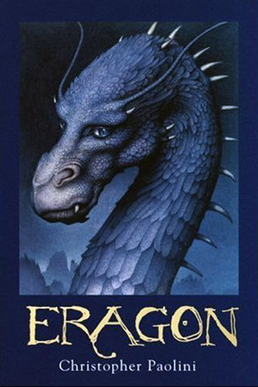I have a terrible commute.
 |
| Even Google Maps is like "This might take you an hour. Or not. Not really sure. Have fun." |
Because of this, I have listened to an unsual amount of audio books. I highly suggest this as a way of life for anyone else out there with a terrible commute. Go to your public library and investigate all those books you always meant to read but never had the chance. With an hour commute, you can finish a book a month just in the time you usually lose to Radiohead and Ke$ha.
On these commutes, I've been "reading" through Stephen King's Dark Tower series. I cannot really express how incredible this has been, as it is one of those stories that transitions very well to an oral telling. I'm going to wait to gush about this series until I've finished it (NO-NO SPOILERS. I know it's been out for years and I could just Google it. That's not the point).
| I must be careful. |
But in the course of this series, I have discovered that, believe it or not, Stephen King does not follow the same rules as you or I. Stephen King does what Stephen King wants. And it doesn't matter what creative writing courses might be forgotten, what rules undone. But today, I heard him break a big one.
Don't hide information from your readers. Hide information from your characters, yes, but never from your readers.
I'm in Wolves of the Calla, Book 5 of the Dark Tower series.*
I'm not going to go into annoying detail here, but in essence, Eddie Dean learns something from another character, right at the end of a chapter. King does the classic "fade-away" technique, drawing away from the conversation just as Eddie learns the advice about their enemies that TOTALLY changes everything about the story. Instead of letting us overhear every word that the characters have been saying, like he has for the entire chapter, King decides to cut right here, and leave us hanging.
You know, ok. It's his story. Let's let him do his thing. I guess we're not supposed to know yet. But then...THEN- Eddie Dean tells this new, incredible information to Roland Deschain, the main charcter (Cowboy/Jedi/Superhero), and yet again, we aren't allowed to hear it. Instead, King concentrates his writing on Roland's face while Eddie tells him this vital information, and yet again we are forced to wait around for the story to get around to the truth.
Stephen King can do this incredibly annoying writing technique, because we trust him. Honestly, I'm in Book 5 of this series, and I know that I'm gong to stick it out till the end. He could introduce literally anything at this point, and I would still read it. (Also, because of the relative insanity of this series, he could happy Miss Piggy leading a communist revolt against the citizens of Fraggle Rock, and it would still somehow make sense).
 |
| Inevitable. |
I tried this technique once, in a creative writing class with Judy Troy at Auburn University. I wrote this perfectly mediocre story about a boy and his divorced mothing dealing with his going off to college and leaving her all alone. I was really trying to tap into real emtional human stuff, really the kind of thing I try to avoid nowadays. But here's the weird thing. I had this whole story wrapped up in the main character's brother, a few years younger than him, who also didn't want to see him go. And we saw this little brother misbehave, act out, and through the whole story we just think he's young and growing up in a hard situation. But then at the end, I revealed that the brother was actually a 17 year old mentally handicapped person this whole time!
And doesn't that just change everything? Wasn't it clever of me to fool you all into thinking this was just a little boy, that all the emotions I was trying to express here were really just a ploy, a distraction from the overall reveal of a side character's...true age?
| Yeah. It was terrible. |
I was scolded incessantly by Judy until I realized that I am not allowed to play this game. If my characters know something, I need to let the readers know it too, instead of creating false tension by holding information behind. This seems like a very natural and easy trap to fall in to, but I know, at the end of the day, my story will be better for it. After all, if my story is good enough, there should be enough tension to keep readers interested without cheating.
*Let me here acknowledge that this is a little weird because I've been listening to this on audiobook, so I can't actually cite any lines here. I could go buy the book, or get it from the library, or find that one particular disk and listen to it enough times so I can write the word exactly, but that sounds terrible.

